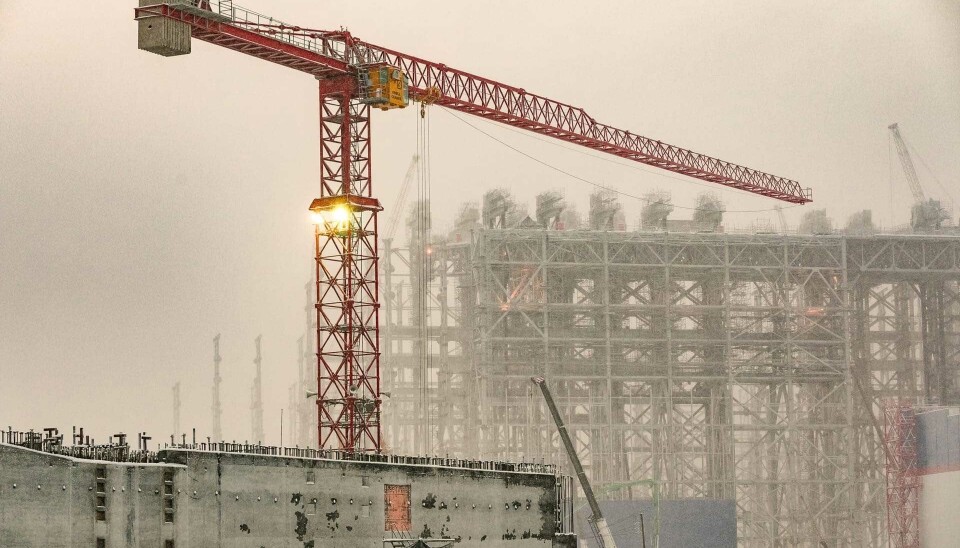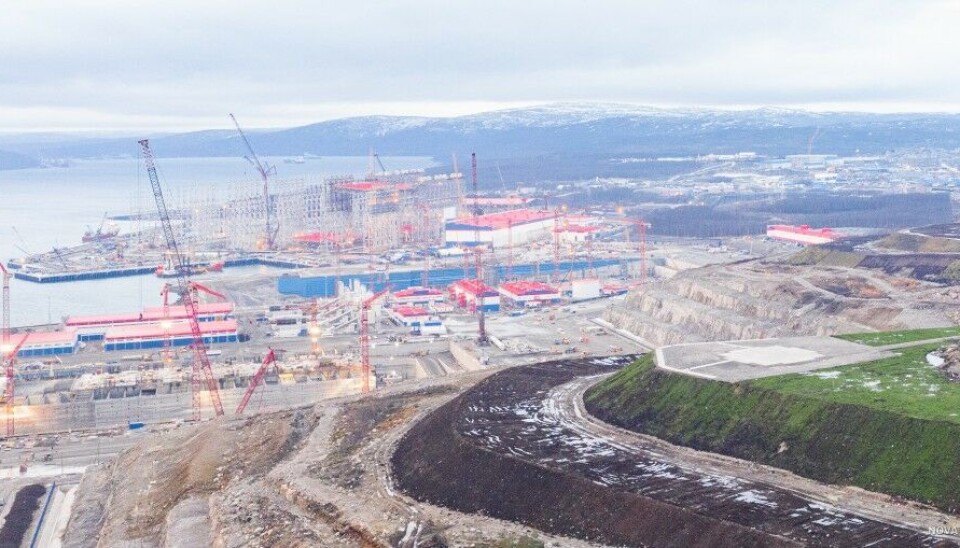
Lights are turned off in Belokamenka
Novatek's LNG construction center outside Murmansk is left in the dark as contractors and subcontractors abandon the plant.
There used to be up 15,000 workers at the LNG construction center in Belokamenka. But Russia's full-scale onslaught on Ukraine and the subsequent massive international sanctions have left Moscow's grand plans in the Arctic in shatters.
Following the departure of the second production platform for the Arctic LNG 2 project , it soon became clear that the major LNG construction center outside Murmansk will be closed.
According to a social media page devoted to the project, the light illumination from the plant is now only 25 percent of what it used to be in period 2021-2023.

The main contractors and subcontractors have left the region. Construction company Vellestroy reportedly abandoned Belokamenka in September. Now also Renkons Arktik is leaving, Murmansk newspaper Arktichesky Obozrevatel reports.
The company that previously was known as Renaissance Arctic has been a key participant in Novatek's development of LNG projects. It has also been heavily engaged in other energy projects across the Russian Arctic.
Only about 500 workers are now believed to be left in Belokamenka. Many of them are involved in patrols and guarding of the site.
The LNG Construction Center was developed to build gravity-based structures for Novatek’s grand Arctic projects. Two structures were towed to the Gulf of Ob in late summer of 2023 and 2024. However, none of them are in production as planned .
In July 2023, Novatek leader Leonid Mikhelson showed Vladimir Putin around at the yard. “It is a world-class industrial site,” Mikhelson told the dictator.
Only few months later, the US Treasury imposed sanctions against the Arctic LNG 2. Several more rounds of sanctions against the project and other parts of Novatek's Arctic operations followed, and the company's new and ambitious projects now appear paralysed.
With the current sanctions regime, Novatek is unlikely to be able to reopen the Belokamenka plant in several years.













